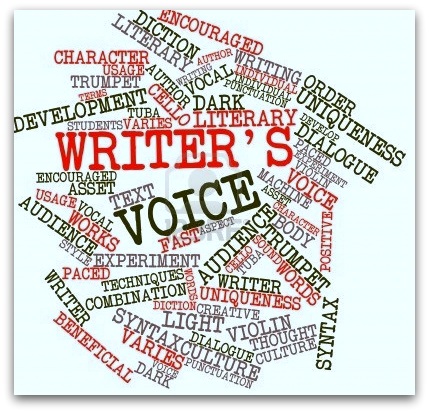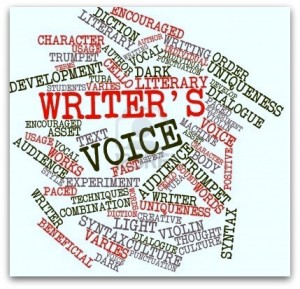



Writing is my addiction
People are addicted to a lot of different things; I’m addicted to writing.
In fact, I’m so addicted, that I spent my entire career as a writer and newspaper reporter, and later, an editor.
How addicted was I?
So addicted, that when I retired five years ago, I kept right on writing: stories, essays, memoir, and poetry. Once an addict…
Some people keep their addictions down to a reasonable level – after all, if you only indulge a few times a week, or once or twice a month, who’s going to notice?
But I’m not that laid back; I write almost every day. I’ve tried all the usual things, even going cold turkey, but no matter what I do, I always go back to my addiction.
I have one major piece of advice for my fellow addicts; give in. Admit you’re an addict. As the old saying goes, when they give you lemons, make lemonade. For example, here’s a poem I wrote recently about my addiction:
I’ve learned some wise words that I heed
On how a writer can succeed.
Work hard; the formula will prove
The way to get you in the groove.
Distractions woo us from all sides;
Excuses roll in like the tides.
For best results, here’s what I say:
Do some writing every day.
Sit right down and write a sonnet;
Good or bad, don’t dwell upon it.
The lazy man will take a fall,
But enterprise can conquer all.
Or, start a novel, fiction’s fun,
Your words will flow while writing one.
The true joy’s in the work itself,
Not just some book upon a shelf.
It’s lonely staring at a page
That’s white and empty at first stage,
But think how happy you will feel
When your own words are down for real.
One caution, though, and you’ll agree;
Life gives you choices; nothing’s free.
Ideas may sparkle, shine, and gleam,
But work alone, fulfills your dream.
If you’ve finally surrendered to your addiction, and you plan to use it for positive outcomes, here are a few practical tips about starting:

A quiet place with an uncluttered desk helps the creativity flow.
First, find a quiet place to work; successful writers thrive in solitude, away from the distractions of family, the day job and noise, including music. Silence is a friend to ideas, and their development through writing.
Use the best technology available, making sure that you have a comfortable chair, and plenty of light; sore butts and tired eyes are the enemies of creativity. You can write anything, anywhere and any place, but why set up obstacles for yourself?
All right, you say; so far, so good, but what should you write about? Where do you find your subject?
Write about what you know. If you teach, you know about the satisfactions and disappointments of your profession. Your personal history is filled with people, and events. If you are a sales person, you know all about selling yourself, to sell your product; if you’ve been looking for a job, write about that.
What you’ve learned in life can be a source of inspiration for all sorts of fiction, from detective novels to fantasy. If you decide to write poetry, the gamut of emotions and events you’ve experienced will serve you well.
And don’t be put off by comparing your efforts to those of successfully-published writers. Remember, they started from scratch, just like you. They learned how to deal with rejection letters from publishers, and became successful in spite of rejections; in fact, the experience only made them redouble their efforts; it strengthened their determination.
Once you’ve settled on a topic (Let’s say, for example, you decide to write a short story about your five-year-old’s first day at kindergarten), Stay on topic!
Many new writers get distracted by side issues. You’re writing about your kid; what happened, what he did, what he felt. Don’t start inserting your opinions about the state of education in the United States, or go off on a rant about the relative virtues of home schooling, or go completely nuts, and start writing about a totally unrelated subject.
Dozens of style guides are available, and many of them give conflicting advice. New writers are often confused and discouraged after reading some of them.
Here’s my advice, based on decades of experience:
Keep it simple. That means, use short, declarative sentences and the simplest words you can find to adequately describe a scene or situation. Where possible, stick to nouns and verbs; nothing messes up a narrative more than strings of adjectives and adverbs.
The whole point of writing is communication. Whether you are writing fiction, or reporting a news event, the aim is to let the reader know what he needs to know, as economically as possible. If you adhere to this, the story will almost tell itself.
A lot has been written about “voice”; has the writer found it, does he have a genuine one, what are the nuances of his “voice,” what is his “voice” trying to convey? Does it succeed?
Pundits on all things literary, like to freight “voice” with semi-mystical qualities, and use it to rank writers to make pronouncements about their chances of immortality.
I’ll let you in on a little secret; everyone has a “voice.” Some are pleasant, some not; some, gentle; some sharp. A writer’s voice is nothing more, or less, than the way he or she puts words on the page; if the voice is clear, you’ll understand what he or she is saying, and enjoy the way he or she says it.
One reason why new writers fail is their misunderstanding of what they are trying to do. If you approach writing as a hobby, something you spare half an hour for when you’re not mowing the lawn, or catching a football game on TV, you’ll fail.
No matter how creative you are, no matter how well you write, always keep one thing in mind; like anything else in life that’s worth doing, successful writing takes hard work, and requires commitment.
Every writer worth his salt has a routine which he follows religiously. It doesn’t matter how you arrive at that routine; without it, you’ll just be wasting your time, and anything you produce will show it.
Carve out a block of time each day when you’re most rested and alert. If you’ve paid attention to me so far, you’ve already set up a place to work, and have the tools you need ready at hand.
Before I forget: Solitude is the writer’s best friend; turn off the TV; Shut off the music; have your partner take the kids to the playground; let the robot answer the phone; ignore the doorbell.
Once you’ve established your routine, you have to decide how many hours to devote to your writing. The maximum time to stay focused on a task varies from individual to individual. You’ll have to experiment to discover what that time is for you.
Nothing is more crazy-making than forcing yourself to stay at a job past your ability to perform it well. That’s why airplane pilots, who perform potentially life-endangering jobs, have limits placed on the number of hours they’re allowed to fly.
How will you know when you’ve reached your limit? When you start to squirm in your chair, when your mind starts to wander, when your neck starts to hurt, it’s time to stop and do something else.
Go in the kitchen and make some coffee; take the dog for a walk around the block; or, if you need more than a fifteen minute break, shut off the computer and walk away. When you return to your desk later, or even better, the next day, you’ll be refreshed and ready to go again.
And one more thing: writing is a job that requires work, but work is supposed to be rewarding. Work is not a synonym for torture or drudgery. If you equate writing with those words, then it’s not for you, but if you find pleasure in telling a story well; if you love words, and their power, than sit right down and start to write.
What are you waiting for?
Marc Leavitt is a retired newspaper reporter and editor. These days, he writes poetry on, Marc Leavitt’s Blog, at: